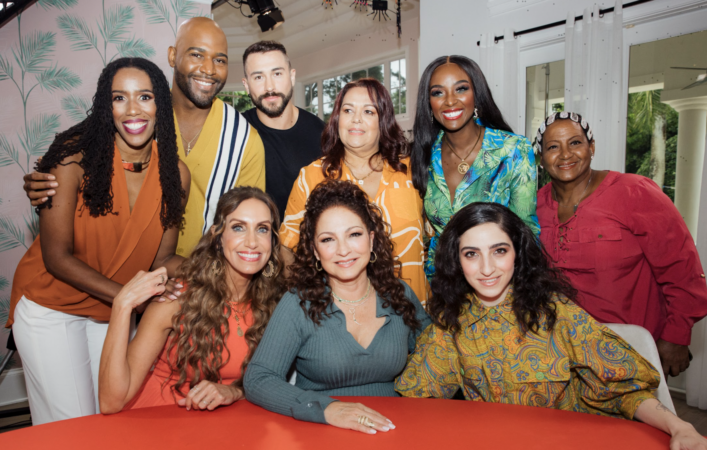Fans are sounding off on the tough conversations between Amara La Negra and Lili Estefan on the latest episode of Red Table Talk: The Estefans. Some are frustrated with the “gaslighting” they feel the singer had to endure while discussing her childhood experiences with racism while performing on Sabado Gigante.
Subscribe to Shadow and Act’s Opening Act.
“People know me or I started off as Diana De Los Santos, back when I used to work at Sabado Gigante with Don Francisco, which by the way now that I’m grown, I don’t know how [Lili] did it because that was a lot,” said Amara. After Estefan asked why, Amara said, “Oh I’ll tell you why. Being on that platform – it was a blessing, I learned a lot from it, I’m grateful for the opportunity…we know that [Don Francisco] wasn’t, y’know, the easiest cookie. At least not for me.”
“There was many things that [Don Francisco] could have done with his platform to help people like myself…He was one of those that also made a lot of those distasteful jokes about people like me,” she continued. “But in that moment, one would accept it. Because y’know ‘The Icon’ who’s gonna go against the power?”
She also talked about how the problem within Latinx culture is that “people have gotten away with” racism without any pushback.
Estefan said how “40 years ago [white Latinx people] didn’t have this conscience” about racism and colorism. She also tried to excuse Francisco’s racism by saying that Amara was “special.”
“But Amara you were special. You have to think about what you were. To start, the only little girl in that conversation who was Black. Do you know how many little girls…[saw you]?”
“I was like the bug in the milk,” said Amara regarding how she felt she was treated.
“I don’t like to generalize, but a lot of us are very [hypocritical]. And that’s just the truth, you know what I’m saying? There is racism…Would you want your daughter or son to marry a Black person? You know what I’m saying?” she said. “…Stop being hypocrites! And it’s the truth and if you’re racist, don’t pretend to like us and really not like us…I’ve heard it all, and they make sure that you know that you are the darkest one…You’ll never, as much as I try to explain it, you’ll never understand how the way people look at you feels. If you walk by a street, people switch sidewalks on the street.”
Lol, so Instagram wanted to block this video, so I’m sharing it here. Recent Red Table interview with Amara La Negra and Karamo Brown. I know y’all will see some of the issues here.
— Your Aries Comrade (she/her) (@tbwomanist23) October 17, 2021
Part One. pic.twitter.com/Djx334o7Jk
“The gaslighting and thinking that Amara should just be grateful for crumbs and tokenism is disrespectful,” wrote one commenter. “Exactly why [white Latinx] folks should not be leading conversations about colorism. Everytime, there’s a defensiveness and sidelining to accountability and listening.”
Part 2. The gaslighting and thinking that Amara should just be grateful for crumbs and tokenism is disrespectful. Exactly why Lightskinned folks should not be leading conversations about colorism. Everytime, there’s a defensiveness and sidelining to accountability and listening. pic.twitter.com/NfSUJkH1A9
— Your Aries Comrade (she/her) (@tbwomanist23) October 17, 2021
Another commenter wrote, “I watched Red Table Talk this morning with the [Estefans] and Amara la Negra and one of them was so dismissive and defensive about her experiences as an Afro Latina and that is a massive part of the problem. Just shut up and listen. Listening to react & not to understand.”
I watched Red Table Talk this morning with the Estebans and Amara la Negra and one of them was so dismissive and defensive about her experiences as an Afro Latina and that is a massive part of the problem. Just shut up and listen. Listening to react & not to understand.
— Carina ✊ (@_CarinaWh) October 15, 2021
The episode also featured Karamo Brown discussing the colorism he faced in his family, leading him to feel alienated from his Cuban heritage. Dr. Elizabeth Hordge-Freeman was also on hand to talk about the difference between race and ethnicity.

